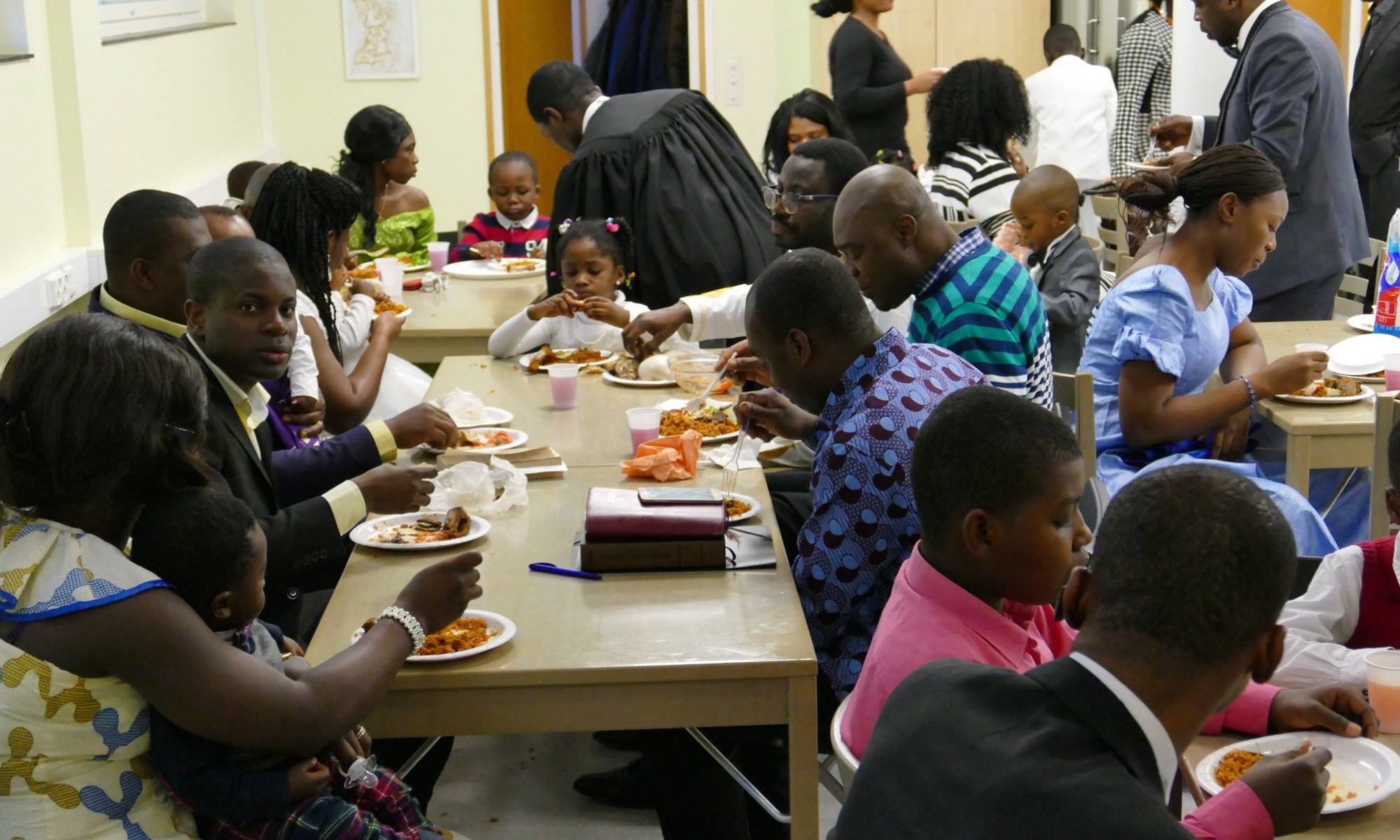“Now I say, That the heir, as long as he is a child, differeth nothing from a servant, though he be lord of all” (Gal 4:1).
Webster defines the` heir` as:
“The man who succeeds, or is to succeed another in the possession of lands, tenements and hereditaments, by descent; the man on whom the law casts an estate of inheritance by the death of the ancestor or former possessor; or the man in whom the title to an estate of inheritance is vested by the operation of law, on the death of a former owner”
According to the above scripture, a child may be entitled to an inheritance, but as long as s/he remains a child, s/he would continue to live his/her life just as a slave does. Does this have to do with the ignorance of the child or his/her physical growth? This has to do with both. If a child is unable to grow and develop normally, s/he would still have to be in the care of his/her care givers or trusted masters until the end of his or her life, otherwise, his/her heirship would be useless.
Also, if a child grows to adulthood but fails to learn or understand that s/he is an heir, s/he would be robbed of their heirship. This is why scriptures read that “My people are destroyed for lack of knowledge: because thou hast rejected knowledge, I will also reject thee, that thou shalt be no priest to me: seeing thou hast forgotten the law of thy God, I will also forget thy children” (Hos 4:6). These explain why an heir child is not different from a slave.
For us to be able to appropriate our inheritance as heirs, we need to both grow and develop. Our growth and development is influenced by both nature (hereditary) and nurture (environment or where people are brought up). We may have little or no power over the nature, we ought to access the environment to our advantage to reach our maximum potential. We may have to do very little (responding to the call of God) to be born again, but to mature in Christ is dependent on us. We must place ourselves in environments that are conducive for our complete development. We would be able to do this through diligent study of the bible, being part of Christian fellowship, prayer, among others. If not, we shall be subordinated to others, just like a slave, until we mature.
A Guardian and an Heir: the Law and the Christian
Concerning an heir child, he is put “… under tutors and governors until the time appointed of the father” (Gal 4:2). The father of the heir child, before his death or absence, appoints a representative and specifies the age at which he (the heir) should have the right to his inheritance or property. This is clearly stated in a will or by an oath. When the age stipulated by the father is due, the heir child is set at liberty and have every right to enjoy his rights and privileges. Paul argues that the Mosaic Law was given by God as our tutor/master or guardian to instruct us and to bring us up until the time appointed by God for us to possess our inheritance. It (the law) was not meant to hold us captive forever. It was to lead us on until the appointed time (Gal 3:24-25).
The Appointed Time
Paul further contends that the time of our liberation that God fixed in His testament (Deut 18:15-18, Acts 3:22) is come. This is evidenced in scriptures as it is written that: “.. when the fullness of the time was come, God sent forth his Son, made of a woman, made under the law, To redeem them that were under the law, that we might receive the adoption of sons”(Gal 4:4-5). This means that the incarnation of Christ Jesus, our Lord, marked the end of our adherence to the law, and our time to receive our full sonship as heirs has already begun under Christ. Christ has redeemed us from the trusteeship or the tutorship, which is the law. We have now been set free from the bondage of the law. We are mature under Christ, for the fullness of the time has come for us to leave the law of Moses behind. Jesus Himself confirmed this when He said that all the law and the prophets prophesied until John the Baptist (Mat 11:13, Lk 16:16). The law and the prophets were only our tutors until Christ. They have, therefore, given way to Christ.
Paul further contends that the time of our liberation that God fixed in His testament (Deut 18:15-18, Acts 3:22) is come. This is evidenced in scriptures as it is written that: “.. when the fullness of the time was come, God sent forth his Son, made of a woman, made under the law, To redeem them that were under the law, that we might receive the adoption of sons”(Gal 4:4-5). This means that the incarnation of Christ Jesus, our Lord, marked the end of our adherence to the law, and our time to receive our full sonship as heirs has already begun under Christ. Christ has redeemed us from the trusteeship or the tutorship, which is the law. We have now been set free from the bondage of the law. We are mature under Christ, for the fullness of the time has come for us to leave the law of Moses behind. Jesus Himself confirmed this when He said that all the law and the prophets prophesied until John the Baptist (Mat 11:13, Lk 16:16). The law and the prophets were only our tutors until Christ. They have, therefore, given way to Christ.
Witness of the Transaction; the Holy Spirit
Adoption of children under Roman law required a witness. So having become full-grown heirs in Christ as adopted children of God (Gal 4:6-7), who is the authorized witness in this transaction? Concerning the Spirit´s witness, it is recorded that:
“For ye have not received the spirit of bondage again to fear; but ye have received the Spirit of adoption, whereby we cry, Abba, Father. The Spirit itself beareth witness with our spirit, that we are the children of God: And if children, then heirs; heirs of God, and joint-heirs with Christ; if so be that we suffer with him, that we may be also glorified together” (Rom 8:15-17).
It is detailed that if any does not have the Spirit of Christ, s/he does not belong to Him (Rom 8:9). As written above, as many as have this witness of the Spirit in them are the heirs of God, and joint heirs with Christ. This means that we share God´s inheritance with Christ Jesus. Being co-heirs with Christ, we need to continuously endeavor to discover and rediscover through the Spirit, the riches of our inheritance in Christ. This is Paul´s prayer for the church when he prays that “the eyes of your understanding being enlightened; that ye may know what is the hope of his calling, and what the riches of the glory of his inheritance in the saints” (Eph 1:18).
It is not enough to be an heir, but we need to understand what it takes to be one, so as to walk according to our office and calling in the kingdom of Christ (Eph 4:1). We ought to mature in the things of God and speak as children of God. Apostle Paul understands this as he shares with us that when he was a child, he spoke as a child, understood as a child, thought as a child: but when he became a man, he put away childish things (1Co 13:11). We shall continue to be slaves to many things (including sin, devil. Law and fellow humans, etc) unless we see our current elevated position in Christ.
It could be concluded that the law is good (1Ti 1:8-9, Rom 7:12) as our master, but it is not intended to bring us salvation (Gal 3:11). Christ, the Lord, is the only means of our salvation (Acts 4:12).
Prayer: May our good Lord, enlighten you to understand scriptures and empower you to live by them. In Jesus’ name. Amen and Amen!

